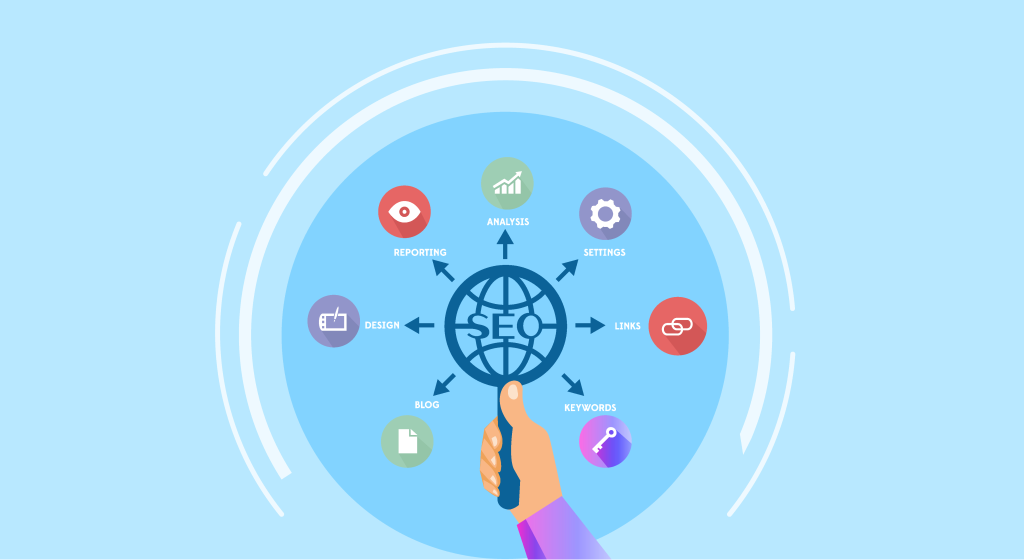
Mastering Email Marketing Dashboards: Strategies for B2B Success
In the dynamic world of digital marketing, the power of email remains unsurpassed, especially in the Business-to-Business (B2B) sector. For companies like Xamtac Consulting, understanding the nuances of effective email strategies is not just a necessity; it's a pivotal element of success. At the heart of these strategies lies a crucial tool: the email marketing dashboard. This comprehensive guide delves into the essence of email marketing dashboards, unfolding their significance in optimizing email campaigns for B2B success.
Understanding Email Marketing Dashboards
Definition and Purpose of an Email Marketing Dashboard
An email marketing dashboard is not just a tool; it's your strategic command center for all email marketing activities. It provides a consolidated view of key metrics and performance indicators, enabling marketers to make informed decisions. The dashboard’s ability to present complex data in an accessible format is invaluable for businesses, particularly those in the SaaS and B2B domains, where data-driven strategies form the backbone of marketing efforts.
Key Components and Features of an Effective Dashboard
A well-designed email marketing dashboard should offer more than just basic analytics. It's about getting a 360-degree view of your campaign’s performance. Key components include:
Open and Click-Through Rates: Essential for gauging the engagement levels of your campaigns.
Conversion Metrics: Vital for understanding how your emails are driving specific actions, be it lead generation or direct sales.
Bounce Rates and List Growth: Indicators of the health and expansion of your email list.
Segmentation Data: Crucial for SaaS email marketing, where personalized content is king.
Campaign Comparison Tools: For analyzing the performance over different periods or against different strategies.
Incorporating these elements ensures that your dashboard isn’t just a data displaying tool, but a guide to refining and improving your email marketing strategies.
The Role of Email Marketing in B2B and SaaS Industries
Email marketing holds a place of prominence in the B2B and SaaS sectors. It’s not just about sending emails; it’s about building relationships and nurturing leads through tailored content and timely engagement.
Overview of Email Marketing in B2B and SaaS Sectors
In the realm of B2B marketing, emails are a direct line to potential clients. They provide a platform for delivering targeted content that addresses specific business needs and pain points. This is particularly true for SaaS email marketing, where educating potential clients about software solutions is critical.
Discussion of How Email Marketing Supports Lead Generation and Customer Retention
Effective email marketing drives B2B lead generation by delivering value-driven content directly to decision-makers. A robust email marketing dashboard plays a pivotal role in this process by tracking which content resonates with the audience, thus aiding in refining the lead generation strategy.
For customer retention, personalized email campaigns, monitored and adjusted via the dashboard, keep existing clients engaged with relevant updates and offers. This targeted approach, a hallmark of B2B email marketing best practices, fosters a sense of value and partnership between the business and its clients.
Leveraging Dashboards for Strategic Email Marketing
The role of an email marketing dashboard extends beyond mere tracking; it’s a strategic asset. By analyzing dashboard data, marketers in the B2B and SaaS sectors can identify trends, understand customer behaviors, and tailor their strategies for maximum impact. This proactive approach is central to SaaS email marketing, where user engagement and software updates are frequent.
SaaS Email Marketing: Tailoring Your Dashboard for Success
Importance of Dashboard Customization in SaaS Email Marketing
Customization is key in SaaS email marketing. Every SaaS company has unique metrics that matter to its business model. Customizing your email marketing dashboard to reflect these unique KPIs (Key Performance Indicators) ensures that you're not just collecting data, but collecting the right data. This might include tracking user engagement with different software features or monitoring the effectiveness of onboarding emails.
Tips for Monitoring and Analyzing SaaS Email Campaign Metrics
Effective monitoring and analysis involve more than just a cursory glance at basic metrics. It requires a deep dive into the data to extract actionable insights. Here are some tips:
Segment Your Data: Look at different user groups to understand how various segments are interacting with your emails.
Track User Journey: From the first onboarding email to regular updates, tracking the user journey helps in optimizing the communication flow.
Analyze Engagement Patterns: Identify which types of emails (educational, promotional, updates) are performing best.
Iterative Testing: Use A/B testing to refine subject lines, content, and call-to-actions (CTAs).
B2B Email Marketing Best Practices
Adhering to best practices in B2B email marketing ensures that your efforts yield the best possible results. An email marketing dashboard is instrumental in implementing these practices effectively.
In-depth Look at Best Practices for B2B Email Marketing
In B2B email marketing, the focus is on creating value and establishing trust. Best practices include:
Personalization: Go beyond “Hi [Name]” and tailor content based on the recipient’s industry, role, or previous interactions.
Value-Driven Content: Share insights, industry trends, and solutions that resonate with a B2B audience.
Consistent, but Not Overwhelming Frequency: Regular emails keep you at the top of mind without flooding the inbox.
Mobile Optimization: Ensure emails are mobile-friendly, as many professionals check emails on-the-go.
Using an email marketing dashboard, you can track how well these practices are working and make necessary adjustments to your strategy.
Leveraging Dashboards to Implement Best Practices Effectively
The data from your email marketing dashboard should inform your strategy. For instance, if personalization increases open rates, your future campaigns should include more personalized elements. Similarly, if mobile-optimized emails have higher engagement, prioritize designing for mobile.
Role of Dashboards in Tracking and Optimizing Lead Generation Efforts
In the context of email marketing B2B lead generation, dashboards are indispensable. They allow you to track which emails convert leads into customers and understand the journey of a lead from the initial contact to a closed deal. This insight is crucial in fine-tuning your lead nurturing strategies, ensuring that each email moves the potential customer further along in the sales funnel.
Generating Leads Through Email Marketing
Strategies for Using Email Marketing for B2B Lead Generation
Lead generation in B2B email marketing is a nuanced process. It requires a blend of strategic content delivery and timing. Some effective strategies include:
Educational Content: Share expertise and insights that establish your company as a thought leader.
Case Studies and Success Stories: Illustrate how your products or services have helped similar businesses.
Tailored Offers: Send special promotions or trial offers that are relevant to the recipient's business needs.
Each of these strategies can be monitored and optimized using an email marketing dashboard, ensuring that your efforts are always data-driven.
Role of Dashboards in Tracking and Optimizing Lead Generation Efforts
The dashboard’s ability to provide detailed insights into user engagement and conversion rates makes it an invaluable tool in lead generation. By analyzing which types of content and which offers generate the most leads, you can continually refine your approach to maximize effectiveness.
Choosing the Right B2B Email Marketing Agency
Selecting the right agency is critical for businesses that need external expertise in managing their email marketing campaigns. A good B2B email marketing agency should not only be proficient in crafting compelling emails but also adept in using dashboards to track and optimize campaigns.
Criteria for Selecting an Email Marketing Agency that Understands Dashboard Analytics
When choosing a B2B email marketing agency, consider the following:
Expertise in Dashboard Analytics: The agency should demonstrate proficiency in using email marketing dashboards to glean insights and optimize campaigns.
Customization Abilities: Look for an agency that can tailor strategies to your specific business needs.
Track Record in B2B Email Marketing: Experience in your sector ensures that the agency understands your unique challenges and opportunities.
The Importance of Data-Driven Decision-Making in Agency Partnerships
Partnering with an agency that values data-driven decisions is crucial. Such an agency will rely on dashboard analytics to make informed recommendations and adjustments to your email marketing strategy, ensuring that every campaign is aligned with your business goals and is performing at its best.
The Importance of Regular Email Marketing Audits
To maintain the efficacy of email marketing strategies, regular audits are essential. These audits help identify areas of improvement and opportunities for optimization.
Explanation of What an Email Marketing Audit Entails
An email marketing audit involves a comprehensive review of your email marketing practices and strategies. Key areas of focus include:
Analyzing Subscriber Lists: Ensuring your lists are segmented effectively and contain engaged subscribers.
Reviewing Email Content: Assessing whether the content aligns with your brand and meets the needs of your audience.
Evaluating Campaign Performance: Looking at open rates, click-through rates, and conversions to gauge the success of your campaigns.
Checking Compliance with Regulations: Ensuring your emails comply with laws like GDPR and CAN-SPAM.
How Dashboards Can Streamline the Audit Process and Improve Campaign Performance
An email marketing dashboard is instrumental in conducting audits. It provides a centralized platform to analyze various metrics and KPIs, helping you spot trends, identify underperforming emails, and understand subscriber behavior. This data is vital in making informed decisions to enhance your email marketing performance.
Integrating Your Email Marketing Dashboard with Other Tools
To maximize the effectiveness of email marketing efforts, integrating your dashboard with other marketing tools and platforms is essential.
Discussion on Integrating Email Marketing Dashboards with Other Marketing Tools and Platforms
Integration allows for a more holistic view of your marketing efforts. For instance, linking your email marketing dashboard with CRM (Customer Relationship Management) software can provide deeper insights into how email interactions affect sales and customer relations. Similarly, integrating with social media platforms can help in understanding the cross-channel behavior of your subscribers.
Benefits of Integration for Data Analysis and Campaign Management
The benefits of integrating your email marketing dashboard with other tools include:
Enhanced Data Analysis: By pooling data from various sources, you gain a more comprehensive understanding of your audience and campaign performance.
Streamlined Campaign Management: Integration allows for more efficient management of campaigns across different channels.
Improved Personalization and Segmentation: With richer data, you can tailor your emails more effectively to different audience segments.
Better ROI Tracking: Integrated dashboards facilitate a clearer view of how your email marketing efforts contribute to your overall business objectives.
The Role of PPC Dashboards in Digital Marketing
The Complementarity of PPC and Email Marketing Dashboards
While email marketing dashboards offer in-depth insights into email campaign performance, PPC dashboards are equally vital for a comprehensive view of your digital marketing efforts. PPC dashboards provide real-time data on your paid advertising campaigns, including performance metrics like click-through rates, cost-per-click, conversion rates, and ROI.
Understanding PPC Dashboards
A PPC dashboard is a powerful tool that aggregates data from your paid advertising campaigns across various platforms such as Google Ads, Bing Ads, and social media advertising. It visualizes key performance indicators (KPIs), helping you make informed decisions about your ad spend and strategy.
Key Benefits of Integrating PPC Dashboards with Email Marketing Dashboards
Holistic Marketing Analysis: By viewing both PPC and email marketing metrics side by side, you can get a comprehensive understanding of your overall digital marketing performance.
Data-Driven Decision Making: The integration allows for cross-referencing data from both channels, providing insights into how your paid advertising influences your email marketing efforts and vice versa.
Optimized Marketing Spend: Understanding the interplay between PPC and email campaigns can help in allocating budgets more effectively, ensuring a better return on investment (ROI).
In the rapidly evolving landscape of digital marketing, the significance of a well-utilized email marketing dashboard cannot be overstated. For businesses in the B2B and SaaS sectors, where data-driven decisions are paramount, these dashboards offer a gateway to deeper insights and more effective strategies.
By embracing the best practices in B2B email marketing, leveraging the power of SaaS email marketing, and continually auditing and integrating your email marketing efforts, you can ensure that your campaigns are not just reaching your audience, but resonating with them.
The journey of mastering email marketing dashboards is ongoing. As technologies evolve and consumer behaviors shift, so too must our strategies and tools. However, with a solid foundation and a commitment to data-driven decision-making, businesses like Xamtac Consulting can look forward to not just participating in the digital marketing landscape but leading it.
10 Tips for Building Effective Research and Analytical Skills
The Ultimate Guide to Online Brand Monitoring: Strategies and Tools
Strategies for Acquiring and Applying Research and Analytical Skills
The Ultimate Guide to SEO Audits: Why You Need an SEO Audit Service

10 Tips for Building Effective Research and Analytical Skills
In today's information-driven society, research and analytical skills are priceless. Whether you're a student, a professional, or just a curious person, developing these research

The Ultimate Guide to Online Brand Monitoring: Strategies and Tools
Building and maintaining a strong online presence is crucial for businesses of all sizes in the modern digital era. Online brand monitoring is an essential component of any marketing plan

Strategies for Acquiring and Applying Research and Analytical Skills
Research and analytical skills have grown into crucial instruments for success in a variety of spheres of life in today's fast-paced, information-rich world.

The Ultimate Guide to SEO Audits: Why You Need an SEO Audit Service
In the ever-evolving digital geography, having a strong online presence is consummate for businesses of all sizes. Whether you are a small original shop or a transnational pot,